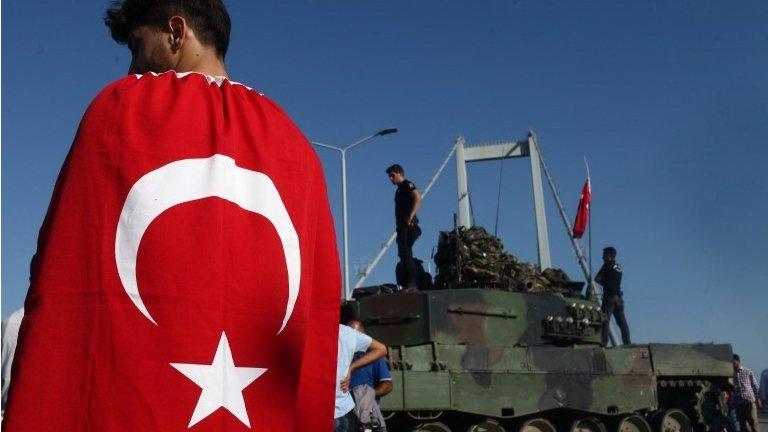Are armed pro-government vigilantes rising in Turkey?
- Published
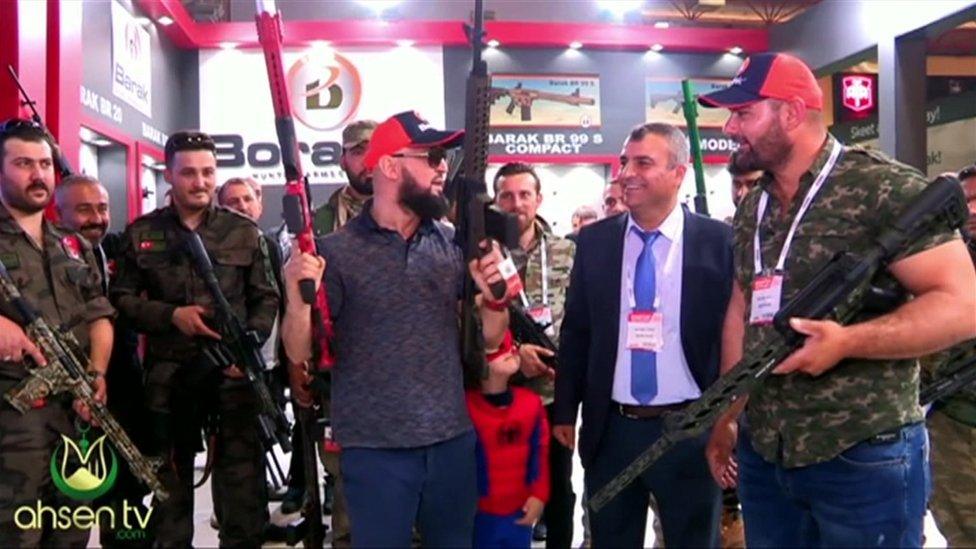
The footage from an arms fair has sparked concern in Turkey
A new law in Turkey has sparked concern that pro-government vigilantes could commit acts of political violence without ever facing justice.
Now there are fears that it is also encouraging civilians to join militia groups to defend the country's leaders, as the BBC's Selin Girit reports.
The men in uniforms merrily wave their guns in the air as they talk to a television reporter.
One of them describes how unprepared they were when the coup attempt took place in Turkey in 2016.
It cannot ever be allowed to happen again, he says. Now people are buying guns and getting trained - and the government, he adds, is helping them do it.
The exchange at an arms fair last year was captured on video and shared by thousands on social media, and it has continued to haunt many people in a country as it grows more and more divided.
The suggestion that groups of civilians could be taking up arms to defend the government is already causing concern. Now there are fears a recent government decree could let them operate with impunity.
Exempt from justice?
The new legislation says all civilians who took part in the suppression of the coup attempt in 2016 will be exempt from prosecution.
The government says it is intended to protect ordinary people who risked their lives to defend elected officials.
But critics argue it makes way for violent pro-government groups to take future action against opponents.
"The passing of the decree is tantamount to forming an armed organisation with government approval," said the main opposition CHP party spokesman Bulent Tezcan.
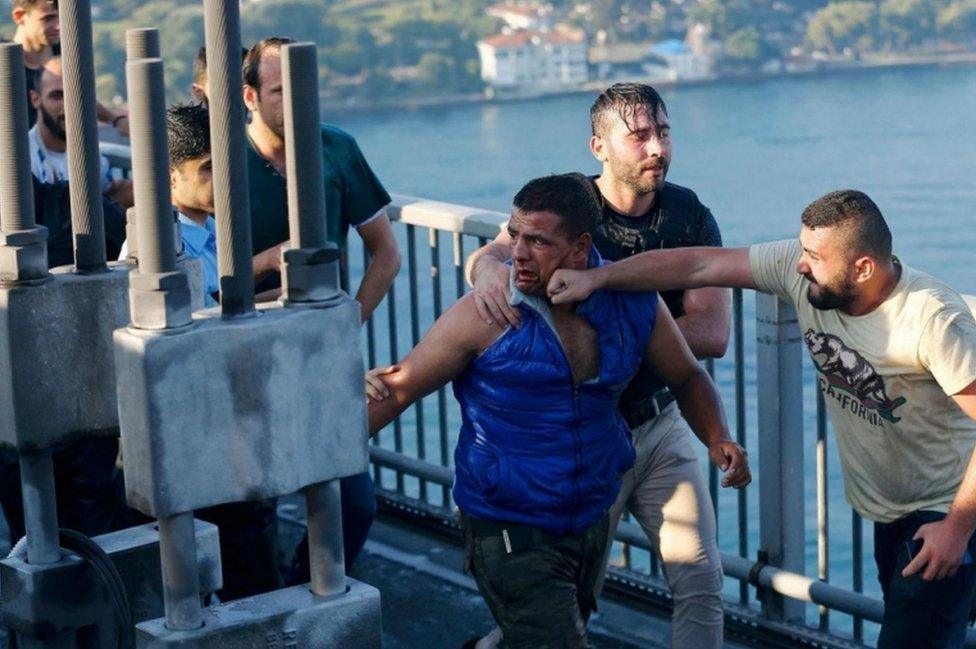
A civilian beats a soldier after troops involved in the failed coup surrendered on the Bosphorus Bridge in Istanbul in July 2016
"Such a decree could be passed only in militarist, fascist countries, in dictatorships that threaten society with civilian militias. This decree lays the foundation for such groups. It plants a bomb at the heart of society."
About 250 people died and 2,196 were wounded when they faced down a coup attempt to overthrow Turkey's leaders, by an army faction on the night of 15 July 2016.
The government has since cracked down on alleged coup supporters, dismissing more than 150,000 state employees and arresting some 50,000 people.
It says the new decree only applies to acts that took place during the coup itself.
But critics allege it has been deliberately left vague, so that any future violence by government supporters could be exempt from justice.
"The decree could potentially pave the way for a civil war in Turkey," argued former interior minister Meral Aksener, now leader of the right-wing opposition The Good Party.
She even claimed there were training camps for pro-government militias in at least two Turkish towns. The government denied the allegations.
'Combat uniform'
One of the most controversial groups that some accuse of being a pro-government militia is the People's Special Forces (HOH).
It was set up after the failed coup and officially registered as a humanitarian association.
Its leader, Fatih Kaya, served in the Turkish Gendarmerie Special Forces for 10 years, taking part in clashes in Turkey's south-eastern conflict zone.
After pictures emerged of him briefly meeting President Recep Tayyip Erdogan, followed by other pictures of him taken in the north of Syria, showing him in combat uniform, opposition groups questioned what HOH stood for.
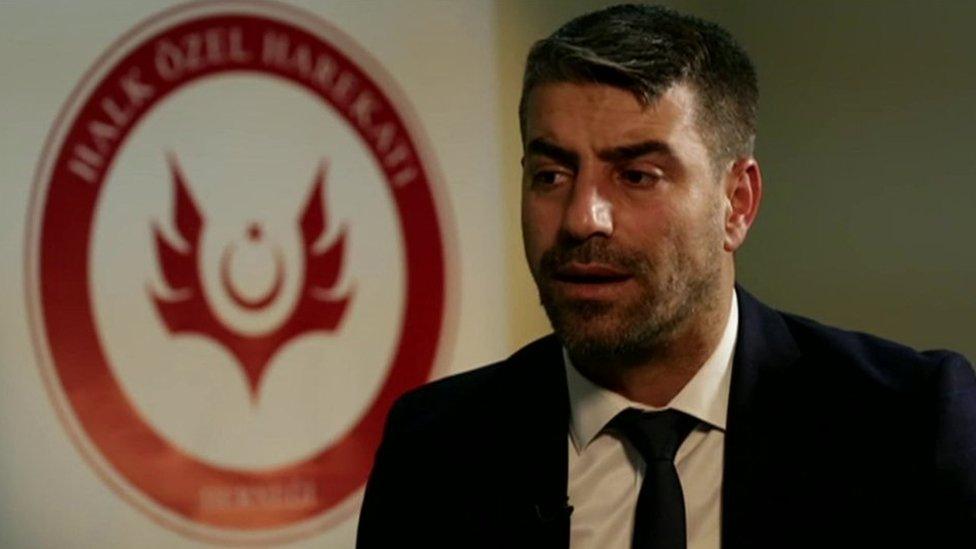
Fatih Kaya, from the People's Special Forces (HOH), has defended the government's law
Speaking to the BBC, Mr Kaya denied HOH was the basis for a pro-government militia group and said he did not own any guns himself.
But he said he supported the government's measure to protect those who had taken up arms in its defence.
"If someone opens fire at you, you cannot throw roses back at them," he said. "You could have committed a crime unwillingly in the heat of that moment.
"Those people who suppressed the coup attempt should never be prosecuted. Otherwise, who will go out on the streets if the same thing happens tomorrow?"
Home-delivered guns
Turkey is estimated to have about 20 million armed civilians.
Ayhan Akcan, from Umut Vakfi (Hope Foundation), a group campaigning against private firearms, says there has been a significant rise in people owning guns in the past three years, with pump-action shotguns the bestseller.
Turkish police say there has in fact been a decline in purchases of licensed weapons. But reports suggest the main problem is the unlicensed guns and rifles; there are thought to be six times more unlicensed weapons than licensed.
Handguns are sold only through government-accredited agencies, but there are walk-in shops where one can purchase rifles or shotguns.
It is also possible to order handguns online, to be delivered to your home.
Mr Akcan is concerned that the increase in unlicensed guns could be partly down to groups arming themselves in preparation for possible attacks on the government.
"Some believe that if people take up arms, that might be good. But in fact that is the biggest danger," he says.
"Some people think they are the real owners of this country. These groups could abuse the legislative decree to commit crimes.
"The government should not let that happen."
- Published22 August 2023

- Published28 December 2017
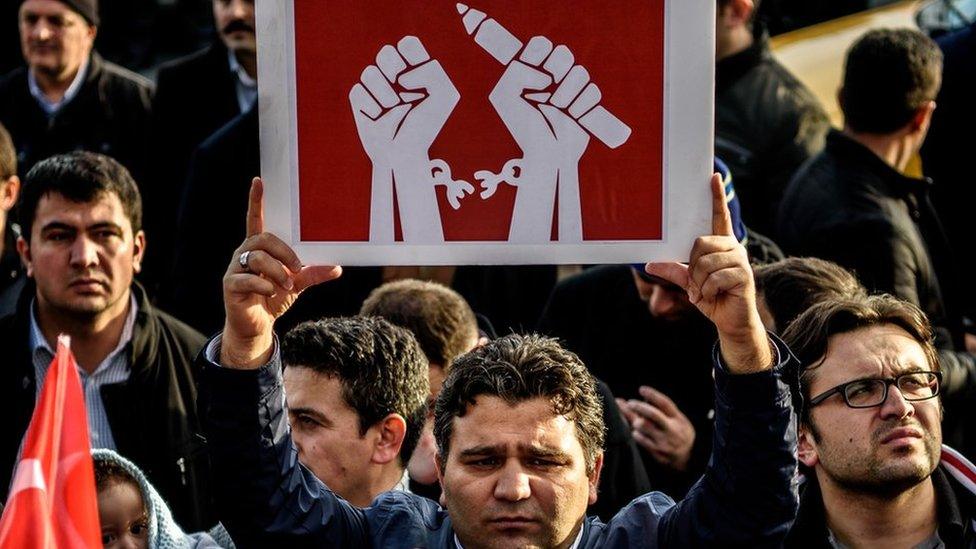
- Published6 July 2017
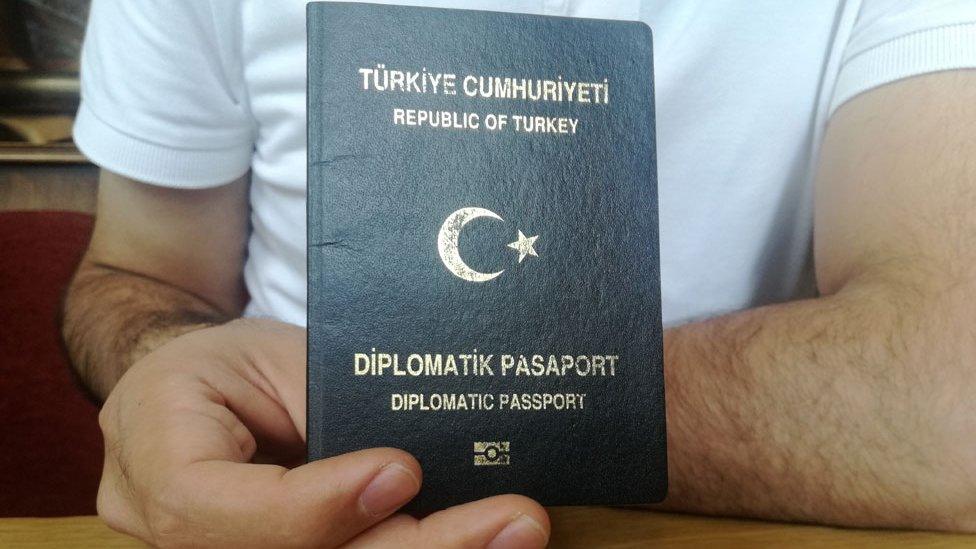
- Published24 March
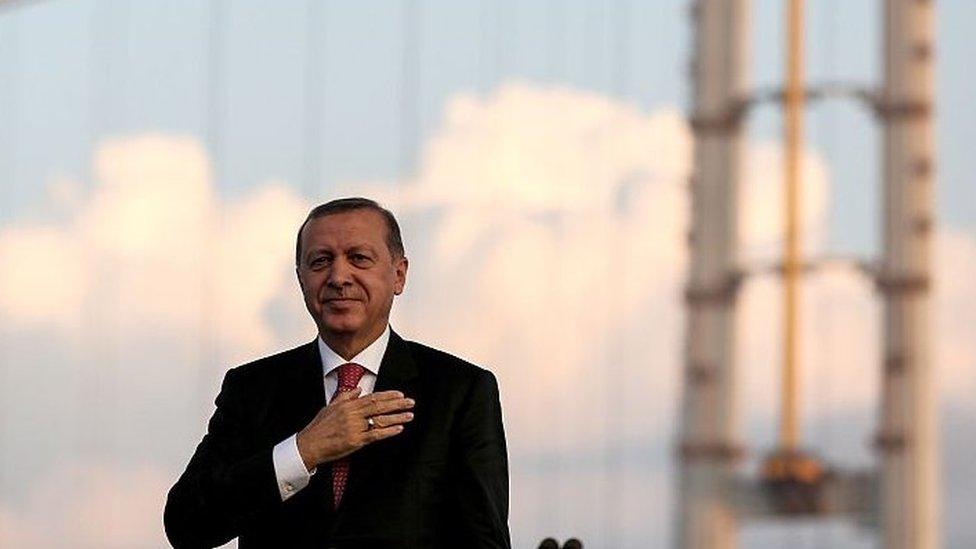
- Published25 November 2016
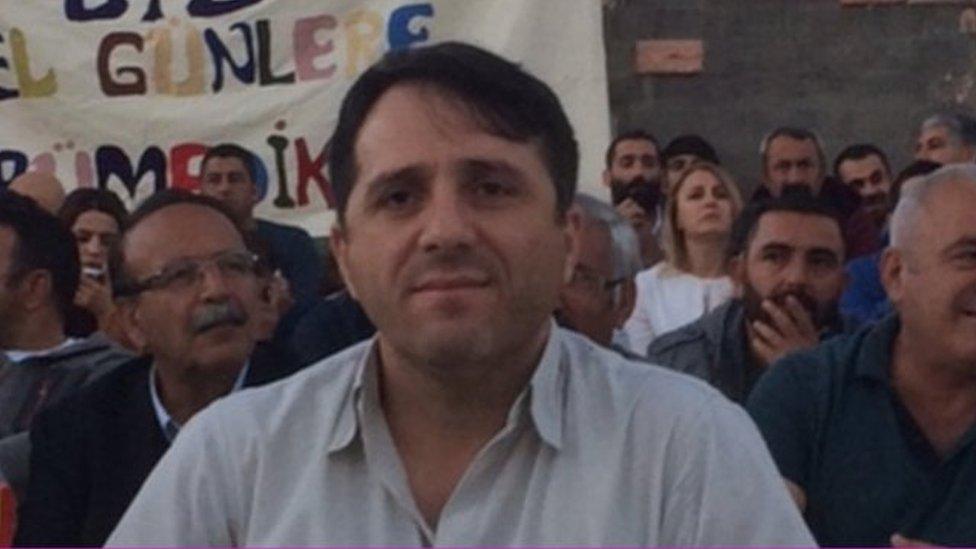
- Published3 October 2016
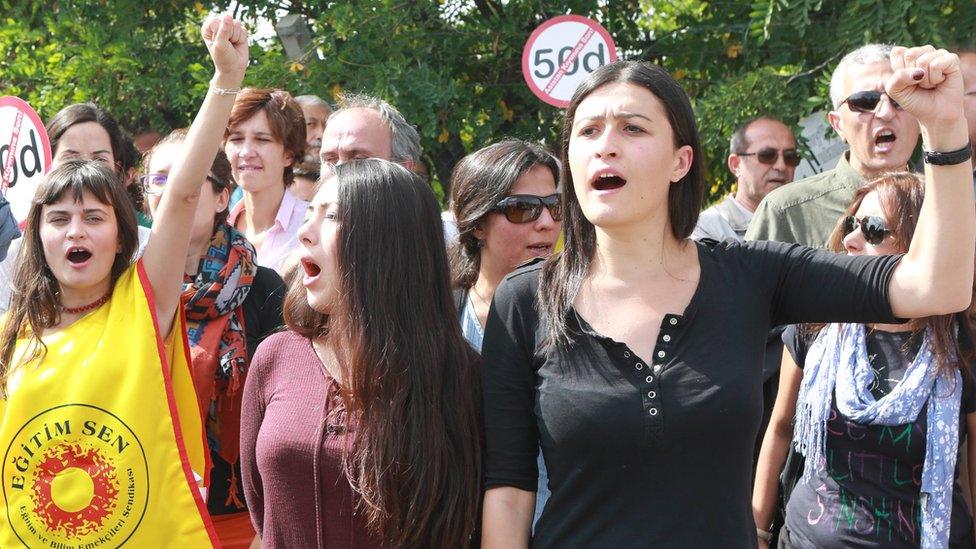
- Published16 July 2016
